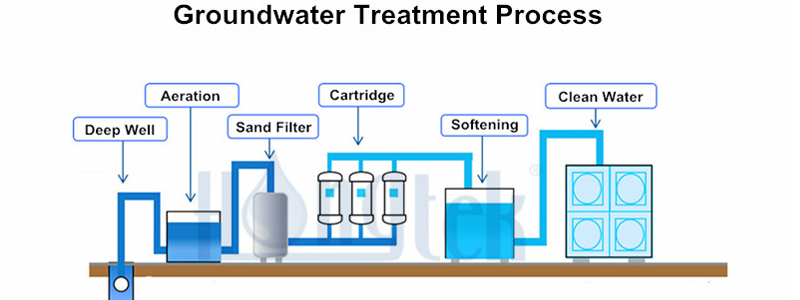Surface Water Treatment Systems

Surface water treatment process
The first step within any surface water treatment plant is to initiate
coagulation which is the combination of coagulants such as polymers, chloride
and sulfate in the water. This mixation targets the unwanted substances by
making them join together and create larger substances called flocs.
Once the process of coagulation is done, then water enters the next stage called
flocculation. In this stage, the created flocs are forced to combine with each
other and entangle other suspended solids, which creates an even larger and
heavier substances that are targeted for removal in the next stage.
The next stage in surface water treatment is known as sedimentation, which
slowly takes the flocculated water through a tank or basin while keeping the
large flocs at the bottom of the system, where they will eventually be
eradicated.
The sedimentation stage is important since it eliminates suspended solids from
the water through the use of filters made of coal, sand, and other particles.
The treatment in this stage also produces perfectly clean water due to the sharp
decrease in turbidity.
Surface water treatment also incorporates carbon which eliminates certain
chemical substances in a process called carbon absorption. To prevent unwanted
contaminants being stuck in the small passageways between grains of sand, this
process forces these contaminants to be attached to the surface of carbon and
are effectively eliminated.
The final stage of surface water treatment is called the disinfection stage
which includes the addition of chlorine, ozone water treatment and other
disinfectants to remove microbiological organisms such as bacteria, viruses,
parasites, etc. Throughout the surface water treatment process, a great deal of
time is spent adding sufficient disinfectant to maintain a residual amount in
the water to effectively remove all pathogens in the passageways.
Pure Aqua provides you with experts to ensure that the most quality surface
water treatment and management is implemented and maintained. By providing a
custom water purification process to manage your plants, there will be a 100%
guarantee of safe and dependable water supply, and minimal operational cost to
your plant.
Surface water are sources of water found on the earth’s surface such as creeks,
rivers, streams, lakes, snow, ocean water, land consisting of marshes, etc.
Surface water is generally lacking of mineral content, and is often referred to
as “soft water.” This water is highly vulnerable to various pollutants including
industrial wastes, pesticides, animal wastes, algae, and many other organic
substances. The vulnerability of this type of water to contamination is so
substantive that even surface water sources from seemingly immaculate mountain
streams can be polluted with animal wastes, or other decay.
Surface water treatment requires a great deal of time and the incorporation of
advanced technology in order to make surface water consumable. Surface water
must go through a plethora of processes before it is made available to the
public to consume.